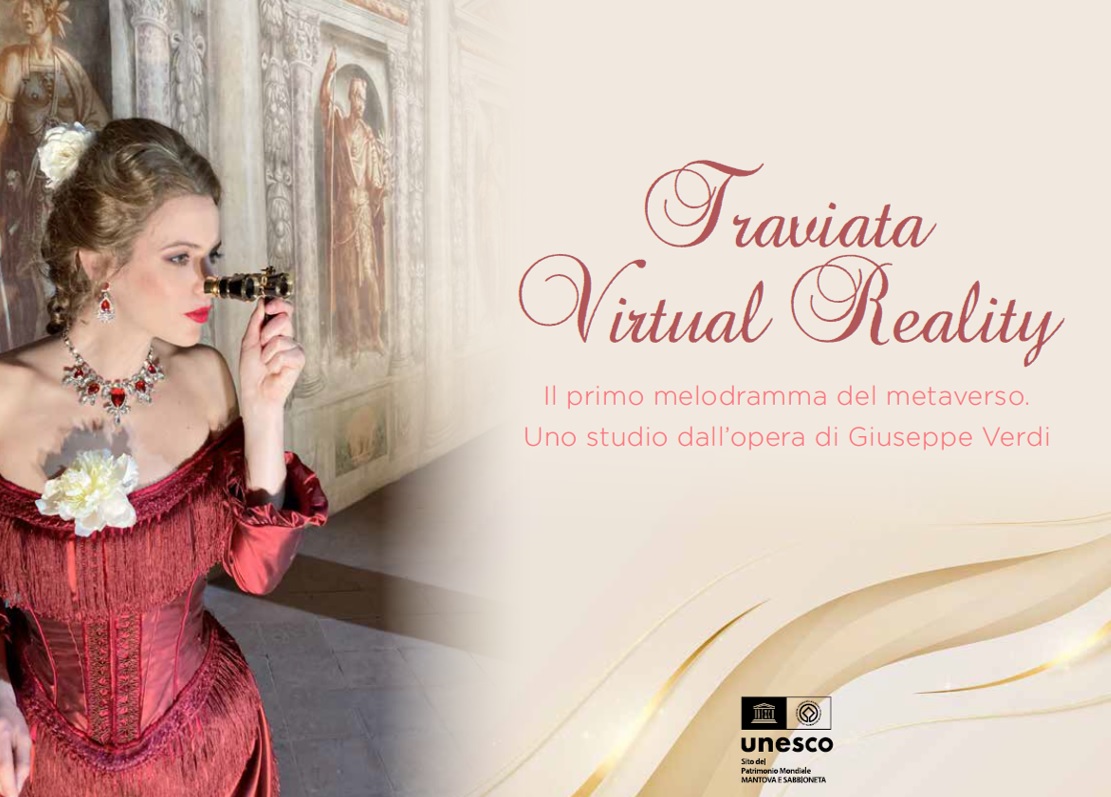Although the world of opera is considered to be steeped in tradition, technology turns out to be a precious resource to draw on to improve the experience of both performers and spectators. Evolution of instruments and tools, advances in theater design, digital delivery, augmented reality are just some examples of how technology has made its contribution in the history of music, theater and therefore also of opera. This phenomenon has often led to a new concept: not only does technology adapt to opera, but also some operas are written with a view to being reproduced and enjoyed thanks to technological means.
And here the timeless and always loved live performances are flanked by operas inserted in virtual landscapes. This is the case, among others, of the Traviata Virtual Reality, the recently presented opera of the metaverse. It is an abridged version with selected scenes of Giuseppe Verdi’s ‘La Traviata’ shot at the Olympic theater and at Palazzo Giardino in Sabbioneta (near Mantova).
It is not the first time that Verdi’s name has been linked to an important technological innovation, just remember that the first opera to be recorded in full was the Ernani in 1903.
“This project is destined to involve digital technologies more and more in the creation of new expressive means and languages, – said councilor Galli during the presentation of the Traviata Virtual Reality in Milan – thanks to which reality and virtuality converge in order to create completely unexpected cultural experiences. […] The immersive reality generated by this project is very exciting because it allows you to overcome the physical and mental space between the spectator and the artists on stage, a spectator who feels the sensation of being an added protagonist on stage, on the stage”.
The virtual reality experiment is not intended as an alternative or substitute for vision in the theater, as explained by Luca Micheletti, director, baritone and actor, rather it is a different interpretation of the spectator’s experience, with different characteristics and a different usability compared to the usual vision.
Thanks to OCULUS Quest 2 technology, it is in fact possible to see the opera at 360 ° and live a totally immersive experience, together with the singers or suspended above the orchestra, always in the wonderful context of the Mantuan UNESCO heritage. This is an original project by Cieli Vibranti and Scena Urbana realized as part of the “Just Opera” project with the patronage of the Lombardy Region: the first experiment of an opera conceived for the Metaverse.


